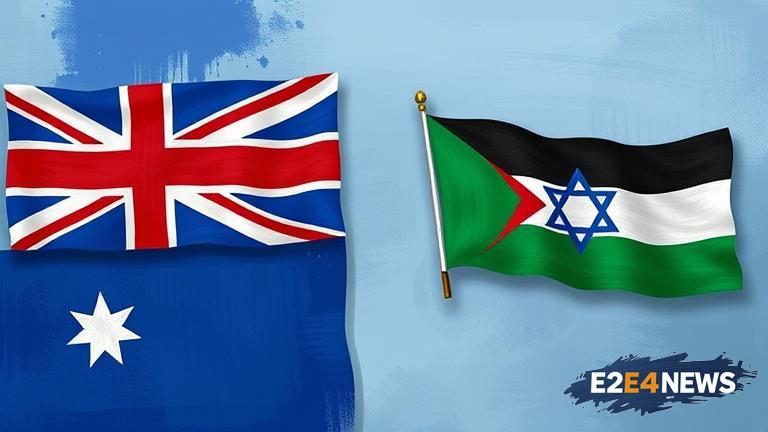The Australian government has announced that it is coordinating with other countries to consider recognizing Palestine as a sovereign state. This move comes amid growing international pressure to acknowledge Palestinian statehood, with several countries having already extended recognition. The decision to recognize Palestine would be a significant shift in Australia’s foreign policy, which has traditionally been aligned with the United States and Israel. The Australian government has stated that it is committed to a two-state solution, with Israel and Palestine living side by side in peace and security. However, the Israeli government has long been opposed to Palestinian statehood, citing security concerns and the need for a negotiated settlement. The Palestinian Authority has been seeking international recognition as a sovereign state for many years, and has gained support from several countries, including the United Kingdom, France, and Sweden. The Australian government’s consideration of recognition is seen as a significant development in the Middle East peace process, and has been welcomed by Palestinian leaders. The recognition of Palestine would also be in line with United Nations resolutions, which have consistently supported the right of the Palestinian people to self-determination. The Australian government has stated that it will continue to work with other countries to achieve a peaceful resolution to the Israeli-Palestinian conflict. The decision to recognize Palestine would also have significant implications for Australia’s relationships with other countries in the region, including Israel and the Arab states. The Australian government has emphasized that its consideration of recognition is not intended to prejudge the outcome of any future negotiations between Israel and Palestine. However, the Israeli government has warned that recognition of Palestine would be a setback for the peace process, and would undermine efforts to achieve a negotiated settlement. The Palestinian Authority has welcomed the Australian government’s consideration of recognition, and has called on other countries to follow suit. The recognition of Palestine would also be seen as a significant victory for the Palestinian people, who have been seeking international recognition for many years. The Australian government’s decision to consider recognition is also seen as a reflection of the growing international consensus in support of Palestinian statehood. The United States has traditionally been opposed to Palestinian statehood, but there are signs that the Biden administration may be willing to reconsider this position. The European Union has also been a strong supporter of Palestinian statehood, and has called on Israel to end its occupation of the West Bank and Gaza Strip. The recognition of Palestine would also have significant implications for the Middle East peace process, and could potentially pave the way for a negotiated settlement between Israel and Palestine. The Australian government’s consideration of recognition is seen as a significant development in this process, and has been welcomed by Palestinian leaders. The decision to recognize Palestine would also be in line with international law, which recognizes the right of the Palestinian people to self-determination. The Australian government has stated that it will continue to work with other countries to achieve a peaceful resolution to the Israeli-Palestinian conflict, and has called on all parties to return to negotiations. The recognition of Palestine would be a significant step towards achieving this goal, and would be seen as a major breakthrough in the Middle East peace process.





